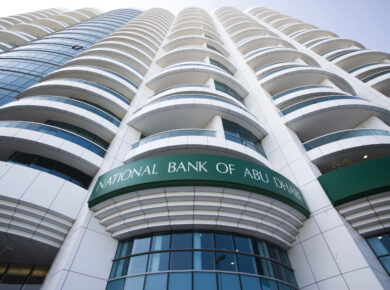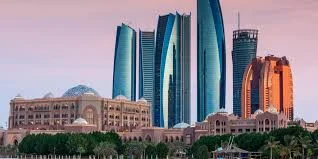US Dollar Scarcity Threatens Bolivia’s Economic Miracle: Can It Survive the Currency Crisis?

Introduction
Bolivia has been hailed as an economic success story in recent years, with an average annual GDP growth rate of 4.7% from 2006 to 2019. The country has been able to reduce poverty rates, increase social spending, and improve infrastructure. However, the scarcity of US dollars is posing a significant threat to Bolivia’s economic miracle.
The US dollar is the world’s primary reserve currency and is used in most international transactions. Bolivia relies heavily on US dollars for imports, debt payments, and remittances. However, due to the COVID-19 pandemic and other factors, the supply of US dollars has been dwindling, leading to a shortage of foreign currency in Bolivia. This shortage has led to an increase in the black market exchange rate, which can have a ripple effect on the overall economy.
US Dollar Scarcity Threatens Bolivia’s ‘Economic Miracle’: Impact and Causes
The scarcity of US dollars in Bolivia has several impacts on the country’s economy. Some of the major effects are:
- Currency Devaluation: The scarcity of US dollars has led to the devaluation of the Bolivian currency, the Boliviano. As the supply of US dollars decreases, the value of the Boliviano decreases, leading to inflation and reduced purchasing power.
- Reduced Foreign Investment: The scarcity of US dollars can also discourage foreign investment in Bolivia. Investors may be hesitant to invest in a country where there is a shortage of foreign currency, as it may make it difficult to repatriate profits or pay back loans.
- Increased Black Market Activity: The scarcity of US dollars has led to an increase in black market activity in Bolivia. Individuals and businesses are turning to the black market to obtain US dollars, which can lead to higher exchange rates and increased inflation.
There are several causes of the US dollar scarcity in Bolivia. Some of the main factors contributing to the crisis are:
- COVID-19 Pandemic: The COVID-19 pandemic has had a significant impact on the global economy, including Bolivia. The pandemic has led to a decrease in exports, remittances, and tourism, which has reduced the supply of US dollars in the country.
- Political Instability: Bolivia has experienced political instability in recent years, with several changes in government. This instability has led to a lack of confidence in the country’s economy, which can discourage foreign investment and reduce the supply of US dollars.
- Fiscal Deficit: Bolivia has been running a fiscal deficit, which means that the government is spending more than it is earning. This deficit can lead to inflation and a reduced supply of US dollars.
US Dollar Scarcity Threatens Bolivia’s ‘Economic Miracle’: Solutions and Prospects
To address the US dollar scarcity in Bolivia, the government can take several steps, including:
- Diversifying the Economy: Bolivia can reduce its reliance on US dollars by diversifying its economy. The country can focus on developing industries that do not rely on imports, such as agriculture and manufacturing.
- Encouraging Foreign Investment: The government can also encourage foreign investment by providing incentives to investors and improving the business environment. This can increase the supply of US dollars in the country.
- Increasing Exports: Bolivia can increase its exports by developing new markets and promoting its products abroad. This can increase the supply of US dollars
- Reducing the Fiscal Deficit: The government can reduce its fiscal deficit by implementing austerity measures, such as reducing public spending and increasing tax revenue. This can help reduce inflation and increase the supply of US dollars.
- Negotiating with International Partners: The government can negotiate with international partners to increase the supply of US dollars. This can include negotiating for foreign aid or loans from international organizations.
- While these solutions can help address the US dollar scarcity in Bolivia, there are also potential drawbacks to consider. For example, austerity measures can lead to social unrest and reduced public services, while increasing exports may lead to environmental degradation.
- Despite the challenges, Bolivia’s economic miracle is not necessarily over. The country has a strong foundation, with a young and growing population and abundant natural resources. With the right policies and strategies in place, Bolivia can continue to thrive and overcome the current currency crisis.
FAQs
Q: How has the US dollar scarcity affected Bolivia’s black market?
A: The scarcity of US dollars has led to an increase in black market activity in Bolivia. Individuals and businesses are turning to the black market to obtain US dollars, which can lead to higher exchange rates and increased inflation.
Q: How can the government address the US dollar scarcity in Bolivia?
A: The government can take several steps to address the US dollar scarcity in Bolivia, including diversifying the economy, encouraging foreign investment, increasing exports, reducing the fiscal deficit, and negotiating with international partners.
Q: What are the potential drawbacks of these solutions?
A: The potential drawbacks of these solutions include social unrest, reduced public services, environmental degradation, and increased dependence on foreign partners.
Conclusion
The US dollar scarcity is posing a significant threat to Bolivia’s economic miracle, but it is not necessarily the end of the country’s growth story. By implementing policies and strategies that address the root causes of the crisis, Bolivia can continue to thrive and overcome the currency crisis. However, this will require careful consideration of the potential drawbacks and a willingness to take bold action to address the challenges facing the country.





Ozdosr
ivermectin 6mg for humans for sale – order generic candesartan 16mg brand tegretol 400mg
December 31, 2024Giremj
order absorica for sale – where can i buy isotretinoin order zyvox generic
January 14, 2025Oumdjw
cheap amoxicillin tablets – buy amoxicillin tablets cheap combivent 100 mcg
January 15, 2025Bnyvmb
buy zithromax without prescription – buy bystolic 5mg pill cheap nebivolol 20mg
January 27, 2025Txipaz
order prednisolone 10mg pill – order progesterone 200mg without prescription progesterone drug
January 30, 2025Mcbcvb
order neurontin online – purchase anafranil generic buy itraconazole 100 mg
February 7, 2025Mzrsul
buy lasix without prescription diuretic – betnovate brand3 buy betnovate cheap
February 8, 2025Lfwjdb
monodox cheap – buy glipizide 10mg sale buy glipizide 10mg without prescription
February 13, 2025Vbfbmq
cost augmentin 625mg – buy clavulanate tablets oral duloxetine 20mg
February 14, 2025Xdteda
buy amoxiclav sale – duloxetine over the counter buy cymbalta cheap
February 21, 2025Lvcyuc
order semaglutide 14 mg generic – buy vardenafil 10mg online order cyproheptadine pills
February 23, 2025Xsqdrs
buy zanaflex generic – brand hydroxychloroquine 200mg buy microzide 25 mg
February 27, 2025Cgscrb
purchase tadalafil online – sildenafil pills 50mg sildenafil 50mg pill
March 3, 2025Jkojiu
order viagra 100mg pills – sildenafil 50mg order generic cialis
March 4, 2025Gpcrnm
order cenforce 100mg generic – chloroquine cheap metformin 1000mg pills
March 11, 2025Zfosdx
buy atorvastatin 20mg online cheap – buy amlodipine 5mg online lisinopril over the counter
March 13, 2025Hahlfo
brand prilosec – prilosec for sale online order atenolol 50mg pills
March 20, 2025Gusmyz
methylprednisolone 16mg over counter – aristocort 4mg brand order aristocort 4mg generic
March 26, 2025Atabrm
buy generic clarinex – claritin online buy priligy generic
March 27, 2025Eoraoa
cytotec online – diltiazem 180mg without prescription order diltiazem 180mg online
March 30, 2025Xsakki
acyclovir pill – rosuvastatin online order order rosuvastatin 20mg pill
April 4, 2025Arfmhb
generic motilium – purchase cyclobenzaprine pill flexeril 15mg us
April 7, 2025Ozgsod
purchase motilium generic – buy flexeril 15mg generic buy flexeril 15mg pills
April 14, 2025Enlbxp
buy cheap propranolol – clopidogrel 150mg cost methotrexate canada
April 15, 2025Xgvxmd
buy medex online cheap – purchase reglan for sale cozaar 25mg over the counter
April 19, 2025Qzlhru
where to buy levofloxacin without a prescription – buy avodart online cheap ranitidine 150mg
April 22, 2025Nizqnq
order esomeprazole 20mg online cheap – nexium 40mg oral sumatriptan 25mg us
April 23, 2025Hlauop
order meloxicam 7.5mg pill – celecoxib 200mg generic flomax 0.4mg usa
April 29, 2025